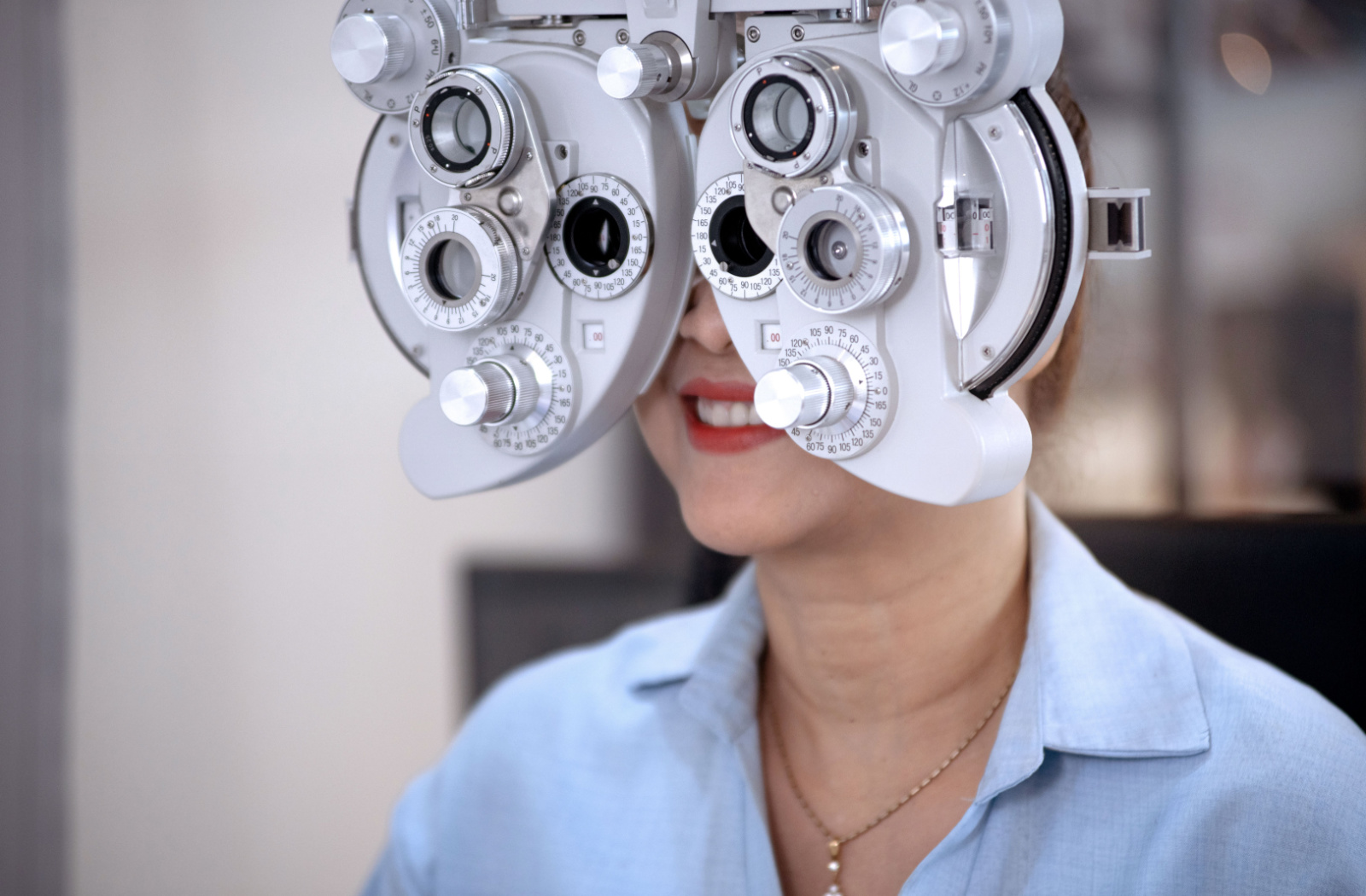All Categories
Featured
Taking care of chronic eye conditions requires a multi-faceted method that includes medical therapy, lifestyle modifications, and proactive treatment. Below are some key ideas to aid patients manage chronic eye problems effectively.
![]()
One of the most crucial means to take care of persistent eye problems is by following an organized therapy strategy developed by an eye treatment expert. Whether it's taking everyday eye drops for glaucoma or organizing routine shots for macular deterioration, adhering to the prescribed therapy program is crucial. Consistent usage of medication or therapies can slow down the progression of the disease and avoid additional vision loss. Patients must likewise be conscious of follow-up visits and any type of needed changes to their therapy strategies.
Chronic eye conditions need continuous tracking to track their progression and detect any type of adjustments early. Normal eye examinations permit health care companies to analyze the problem and adjust treatments as needed.
Diet regimen plays a significant function in taking care of persistent eye problems. Omega-3 fatty acids located in fish such as salmon and flaxseeds have anti-inflammatory properties that can support eye health, particularly for clients with completely dry eye illness.
Protecting your eyes from ecological elements is essential for handling chronic conditions. UV rays from the sunlight can get worse conditions like cataracts and macular deterioration. Wearing sunglasses with UV protection is essential when outdoors, even on over cast days. Furthermore, individuals with completely dry eyes ought to avoid settings that add to dryness, such as dusty or gusty problems, and use humidifiers to preserve dampness airborne. Correct eye protection is additionally required for people functioning in environments with bright lights, dirt, or chemicals.
![]()
Routine workout helps improve blood flow, which is essential for maintaining eye health, particularly for people with diabetic issues or high blood stress, both of which can add to eye conditions. Prior to starting a new workout routine, it's always a great concept to consult your physician to guarantee your tasks are risk-free for your particular eye problem.
Dealing with a chronic eye problem can often cause stress and anxiety, anxiety, or stress. Stress can adversely impact your wellness, including eye health and wellness, and intensify symptoms of persistent conditions. Finding ways to take care of tension with leisure techniques, such as deep breathing workouts, yoga, or reflection, can benefit both your physical and emotional wellness. Assistance from enjoyed ones and signing up with support system for people with similar problems can aid ease sensations of isolation and give emotional relief.
Modern technology has made it less complicated for people with persistent eye conditions to continue leading independent lives. For individuals with macular degeneration or diabetic retinopathy, devices like magnifying glasses, text-to-speech apps, and high-contrast displays can aid with daily tasks like analysis, seeing TV, or making use of a computer system. Additionally, low-vision help and movement gadgets can help in navigating and aid clients keep self-reliance in spite of vision loss.
Staying informed about your problem and the latest therapies is important for effective monitoring. Enlighten on your own regarding your particular eye problem, its progression, and offered therapy alternatives.
Focus on any type of modifications in your vision, such as blurriness, double vision, or abrupt vision loss, and report them to your eye care company asap. Early discovery of any kind of complications can make a considerable distinction in the end result of your problem. Keeping a everyday or weekly log of your signs can help both you and your physician spot patterns and determine prospective problems better.
To conclude, handling chronic eye problems needs a proactive strategy, consisting of normal medical examinations, adherence to therapy strategies, a healthy way of life, and psychological assistance. With the ideal treatment and commitment, clients can effectively handle their problem and preserve their vision and lifestyle. By adhering to these ideas and staying alert regarding eye health, you can empower on your own to take control of your condition and enjoy a meeting life in spite of the difficulties.

- Comply With a Structured Treatment Plan
One of the most crucial means to take care of persistent eye problems is by following an organized therapy strategy developed by an eye treatment expert. Whether it's taking everyday eye drops for glaucoma or organizing routine shots for macular deterioration, adhering to the prescribed therapy program is crucial. Consistent usage of medication or therapies can slow down the progression of the disease and avoid additional vision loss. Patients must likewise be conscious of follow-up visits and any type of needed changes to their therapy strategies.
- Regular Eye Tests and Tracking
Chronic eye conditions need continuous tracking to track their progression and detect any type of adjustments early. Normal eye examinations permit health care companies to analyze the problem and adjust treatments as needed.
- Preserve a Healthy And Balanced Diet for Eye Wellness
Diet regimen plays a significant function in taking care of persistent eye problems. Omega-3 fatty acids located in fish such as salmon and flaxseeds have anti-inflammatory properties that can support eye health, particularly for clients with completely dry eye illness.
- Safeguard Your Eyes from Ecological Stress Factors
Protecting your eyes from ecological elements is essential for handling chronic conditions. UV rays from the sunlight can get worse conditions like cataracts and macular deterioration. Wearing sunglasses with UV protection is essential when outdoors, even on over cast days. Furthermore, individuals with completely dry eyes ought to avoid settings that add to dryness, such as dusty or gusty problems, and use humidifiers to preserve dampness airborne. Correct eye protection is additionally required for people functioning in environments with bright lights, dirt, or chemicals.
- Keep Energetic and Workout Consistently

Routine workout helps improve blood flow, which is essential for maintaining eye health, particularly for people with diabetic issues or high blood stress, both of which can add to eye conditions. Prior to starting a new workout routine, it's always a great concept to consult your physician to guarantee your tasks are risk-free for your particular eye problem.
- Manage Tension and Mental Wellness
Dealing with a chronic eye problem can often cause stress and anxiety, anxiety, or stress. Stress can adversely impact your wellness, including eye health and wellness, and intensify symptoms of persistent conditions. Finding ways to take care of tension with leisure techniques, such as deep breathing workouts, yoga, or reflection, can benefit both your physical and emotional wellness. Assistance from enjoyed ones and signing up with support system for people with similar problems can aid ease sensations of isolation and give emotional relief.
- Look For Assistive Gadgets and Innovation
Modern technology has made it less complicated for people with persistent eye conditions to continue leading independent lives. For individuals with macular degeneration or diabetic retinopathy, devices like magnifying glasses, text-to-speech apps, and high-contrast displays can aid with daily tasks like analysis, seeing TV, or making use of a computer system. Additionally, low-vision help and movement gadgets can help in navigating and aid clients keep self-reliance in spite of vision loss.
- Enlighten Yourself and Keep Informed
Staying informed about your problem and the latest therapies is important for effective monitoring. Enlighten on your own regarding your particular eye problem, its progression, and offered therapy alternatives.
- Display Symptoms and Record Adjustments Immediately
Focus on any type of modifications in your vision, such as blurriness, double vision, or abrupt vision loss, and report them to your eye care company asap. Early discovery of any kind of complications can make a considerable distinction in the end result of your problem. Keeping a everyday or weekly log of your signs can help both you and your physician spot patterns and determine prospective problems better.
To conclude, handling chronic eye problems needs a proactive strategy, consisting of normal medical examinations, adherence to therapy strategies, a healthy way of life, and psychological assistance. With the ideal treatment and commitment, clients can effectively handle their problem and preserve their vision and lifestyle. By adhering to these ideas and staying alert regarding eye health, you can empower on your own to take control of your condition and enjoy a meeting life in spite of the difficulties.
Latest Posts
Picking the Right Roofing Color: Influence On Power Performance
Published May 25, 25
1 min read
Explore Your Financial Partner at WyHy – Member-Focused Services for Your Goals
Published May 24, 25
1 min read
Uncover Premier Vehicle Maintenance Care offered by Montclare Auto Repair – Drive with Confidence
Published May 22, 25
1 min read
More
Latest Posts
Picking the Right Roofing Color: Influence On Power Performance
Published May 25, 25
1 min read
Explore Your Financial Partner at WyHy – Member-Focused Services for Your Goals
Published May 24, 25
1 min read
Uncover Premier Vehicle Maintenance Care offered by Montclare Auto Repair – Drive with Confidence
Published May 22, 25
1 min read